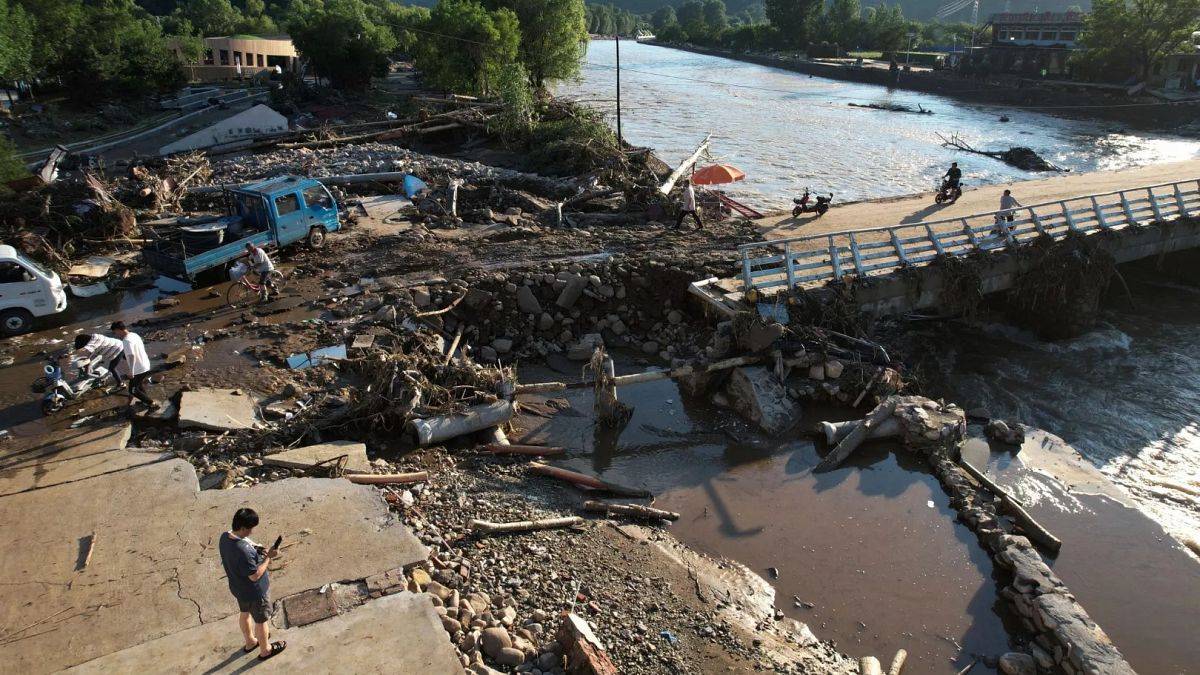

In a time where the environment tests human resilience, communities worldwide are rising to the occasion with determination and precautionary measures amid natural adversities. Recent events in several regions remind us of the interconnectedness of humanity and our planet.
In Beijing, a series of intense rains led to tragic circumstances at a care facility situated on low-lying ground near a swelling river. The floods, triggered by the unusually fierce rains, sadly resulted in the loss of 31 lives within the care complex. This unfortunate event underscores the urgency for improved infrastructure and flood prevention strategies around vulnerable areas, where precaution can save lives.
Meanwhile, in southern Europe, wildfires present an ongoing challenge. In Galicia, Spain, a fierce wildfire in A Cañiza, Pontevedra, has already claimed over 200 hectares of land, prompting emergency services to initiate a State 2 emergency protocol. The fire forced some residents to evacuate their homes, while several nearby villages were put under lockdown to ensure safety. Authorities continue to work tirelessly to contain the flames and protect the communities at risk.
The broader picture in Spain reveals a nation grappling with wildfires on multiple fronts, with thousands of hectares scorched and countless individuals evacuated. Firefighters and emergency responders are engaged in an intense campaign to control these blazes, focusing on minimizing further damage and ensuring the safety of residents.
Portugal, too, is experiencing an alarming increase in wildfire activity. By mid-July, the country witnessed over 3,000 fires, burning a staggering total of 10,768 hectares—three times the area affected during the same period in the previous year. This dramatic rise highlights the need for a concerted effort in forest management and preventative measures to protect the land and communities from escalating wildfire episodes.
In Asia, extreme weather patterns also demand public attention. Japan and South Korea find themselves enduring record-breaking heat waves. South Korea, in particular, has witnessed an unprecedented sequence of “tropical nights” for 22 consecutive days, amplifying the strain on health systems and elevating the risk of heat-related illnesses.
Similarly, Japan’s cities have recorded their hottest days on record, prompting authorities to issue advisories encouraging citizens to prioritize hydration, limit outdoor exposure, and take necessary precautions to prevent heatstroke. These advisories reflect a proactive approach, reminding residents to take personal responsibility alongside communal efforts to cope with the searing conditions.
These events across continents, diverse as they may seem, highlight a common theme: the pressing need for global strategies and local solutions in facing the ecological challenges of our time. They serve as poignant reminders of the delicate balance between humanity and the natural world and the dynamic resilience required to adapt and persevere.
While the trials are significant, they have sparked a proactive spirit in communities and governments alike, who continue to work collaboratively in response to nature’s call, paving the way toward a future where stability and sustainability go hand in hand.
Source: {link}
